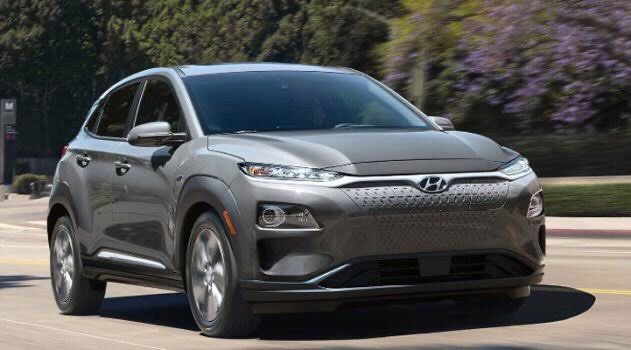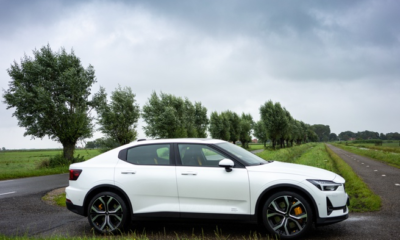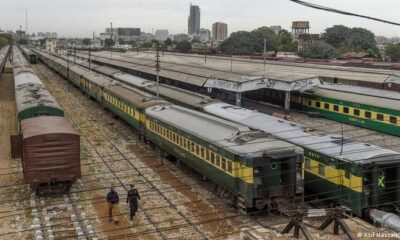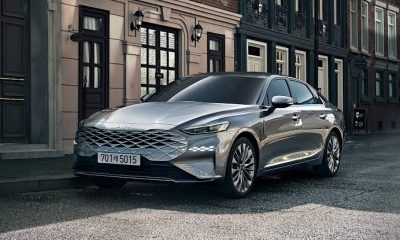Car News
Electric vehicle integration gaining traction in Nigeria, says NADDC DG

Nigeria is on the right part towards the gradual elimination of fossil fuel and graduation migration towards the adoption of electric energy as an alternative to power vehicles. This was the declaration of Aliyu Jelani, the director-general of National Automotive Design and Development Council (NADDC) in Lagos at the unveiling of the first solar-powered electric vehicle charging station built inside the University of Lagos (UNILAG).
This is coming barely three months after the NADDC, a parastatal under the federal ministry of industries, trade and Investment commissioned the first facility at the Uthman Danfodio University Sokoto in the northern part of Nigeria.
In his remarks, the director-general of the NADDC, Jelani Aliyu, observed that “the world is in a race on the backs of eagles, and Nigeria cannot afford to be in that race on the backs of anything less, neither a falcon nor a hawk, but on the backs of eagles”.
He explained that the push towards greener energy was important because “the world can no longer afford to continue polluting the environment through the use of fossil fuel and its attendant emission of carbon dioxide, carbon monoxide and methane.
“That is why the NADDC, with the immeasurable support of the Federal Ministry of Industry, Trade and Investment, is committed to promoting the adoption, development, manufacturing and usage of advanced technology in the Nigerian automotive sector.”
The NADDC boss recalled that “early this year on February 5, the minister unveiled the first Nigerian assembled Electric Vehicle, the Hyundai Kona EV.
Today (Tuesday) he is commissioning the NADDC Solar Powered EV Charging Station, here at the University of Lagos. These developments add Nigeria to the league of nations actively committed to the protection of the environment through zero emissions vehicles.”
At the head of the federal government team to inaugurate the electric vehicle charging station attended by the political class, the academia and stakeholders in the local automotive industry was the minister of industry, trade and investment, Niyi Adebayo who also unveiled the station. The charging station among other things is equipped with deep cycle batteries of up to 95Kwh storage capacity.
The minister stated that “this programme is another of the federal government’s initiatives, designed to promote advanced technology transfer and the development of sophisticated human capital.
The UNILAG alumni stated that, the federal ministry of industry, trade and investment, programmes such as these are the lifeblood of everything we are trying to achieve. It is, after all, a proven fact among advanced nations, that the key to successful industrialisation is strategic human capital and capacity development in state-of-the-art technologies.
“So what does this mean for you? It means giving you the tools to build a future that is uniquely yours, to inspire in you the light of innovation and creativity that will enable you write a new chapter.”
Adebayo added that “this charging station has been developed by the NADDC in its efforts to promote applicable local solutions for vehicle electrification in Nigeria. It will offer students firsthand experience with the latest innovations in mobility and renewable power technology.
It is strategised to be an effective platform for focused research and development into even more applicable vehicle electrification solutions for Nigeria and Africa.”
Vice-chancellor of the University of Lagos, Oluwatoyin Ogundipe, a professor in his response stated that the university is appreciative of the gesture and will put the facility to maximum use.
Other dignitaries who graced the occasion include the board chairman of the NADDC board; Osita Izunaso a one-time senator, board members and directors of NADDC, senate members of the university, and group chief executive officer of the Stallion Group; the local assemblers of the Hyundai Kona electric vehicle being the first electric vehicle to be assembled in the country.
-

 AVIATION5 years ago
AVIATION5 years agoPhoto News: Air Peace commence flight operations to South Africa
-

 Car News5 years ago
Car News5 years agoPolestar is recalls over 2000 electric cars due to software bug
-

 RAIL5 years ago
RAIL5 years ago36 Killed in Pakistan Train Accident
-

 Technology5 years ago
Technology5 years agoCommon mistakes in CO₂ emissions calculations
-

 Business5 years ago
Business5 years ago2016 Volvo XC60 review and specifications
-

 Reviews5 years ago
Reviews5 years ago2021 Audi A6 Specifications and Review
-

 SAFETY / CAR CARE5 years ago
SAFETY / CAR CARE5 years agoHandbrake warning light; what it means and what to do
-

 Reviews3 years ago
Reviews3 years agoDebutant Kia’s new K8 sedan benchmarks luxury, safety
